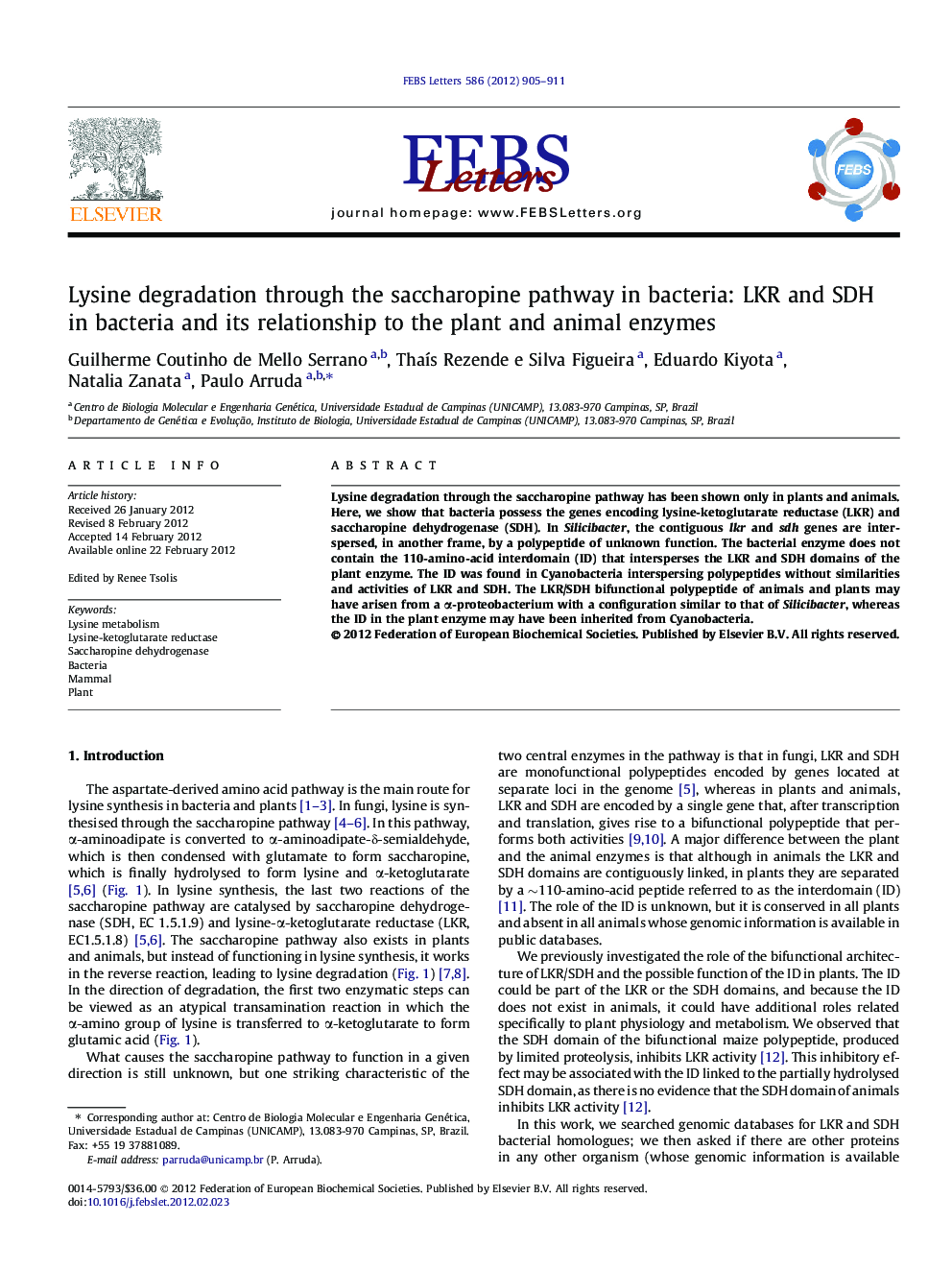| Article ID | Journal | Published Year | Pages | File Type |
|---|---|---|---|---|
| 2048517 | FEBS Letters | 2012 | 7 Pages |
Lysine degradation through the saccharopine pathway has been shown only in plants and animals. Here, we show that bacteria possess the genes encoding lysine-ketoglutarate reductase (LKR) and saccharopine dehydrogenase (SDH). In Silicibacter, the contiguous lkr and sdh genes are interspersed, in another frame, by a polypeptide of unknown function. The bacterial enzyme does not contain the 110-amino-acid interdomain (ID) that intersperses the LKR and SDH domains of the plant enzyme. The ID was found in Cyanobacteria interspersing polypeptides without similarities and activities of LKR and SDH. The LKR/SDH bifunctional polypeptide of animals and plants may have arisen from a α-proteobacterium with a configuration similar to that of Silicibacter, whereas the ID in the plant enzyme may have been inherited from Cyanobacteria.
► The genomes of Silicibacter pomeroyi and other environmental bacteria encode enzymes of the saccharopine pathway. ► A 100 amino acid interdomain peptide (ID) interspaces the LKR and SDH domains of the plant bifunctional polypeptide. ► ID was found only in Cyanobacteria interspacing two polypeptides without LKR and SDH activities. ► Plants may have inherited LKR and SDH from α-proteobacteria and ID from Cyanobacteria.
